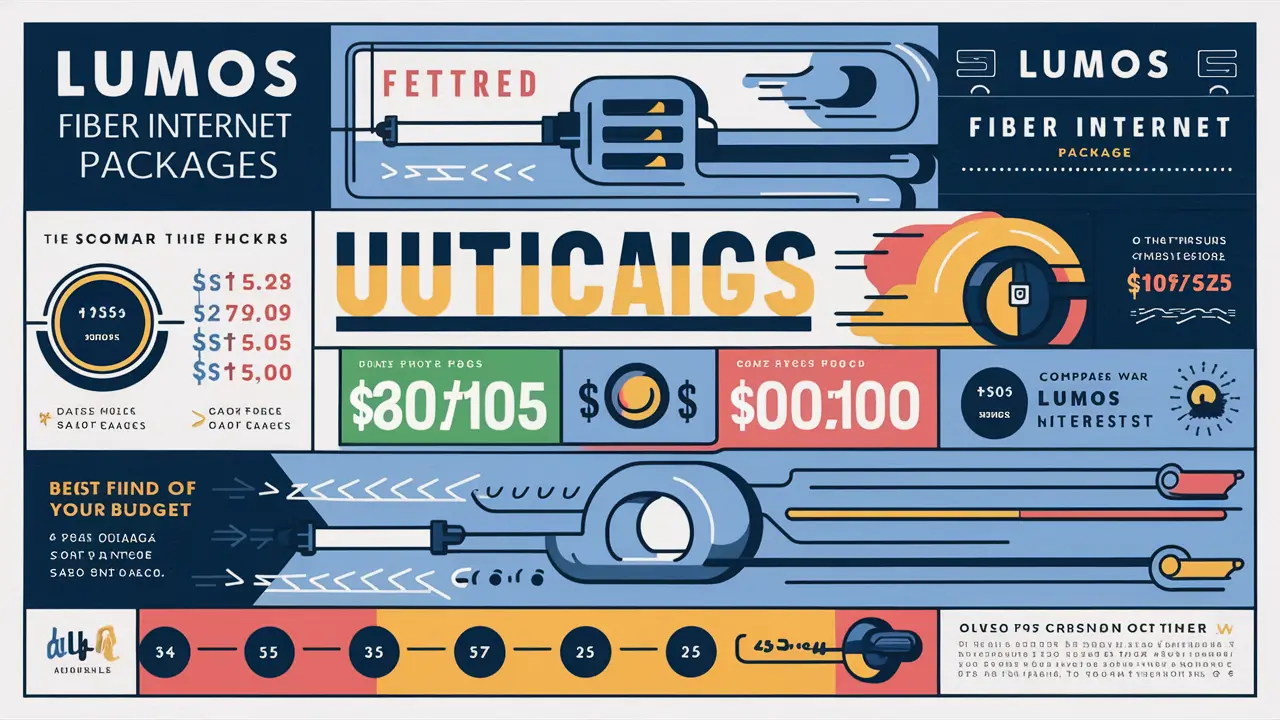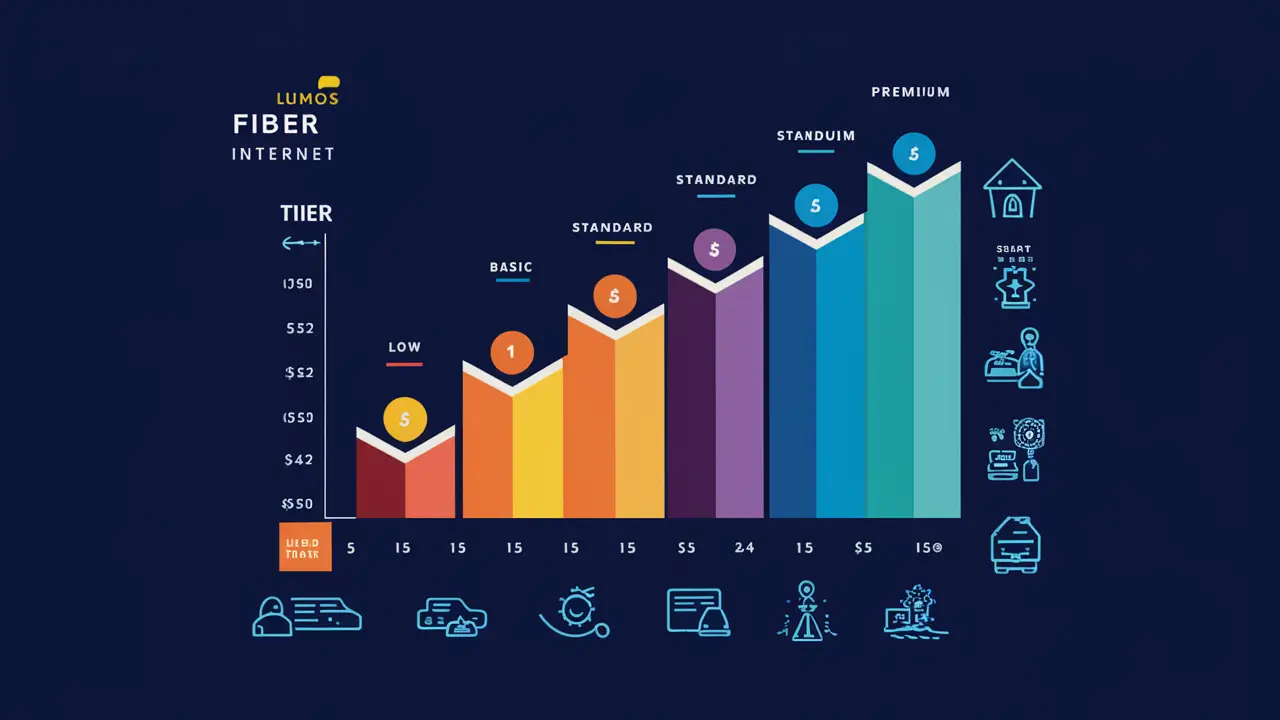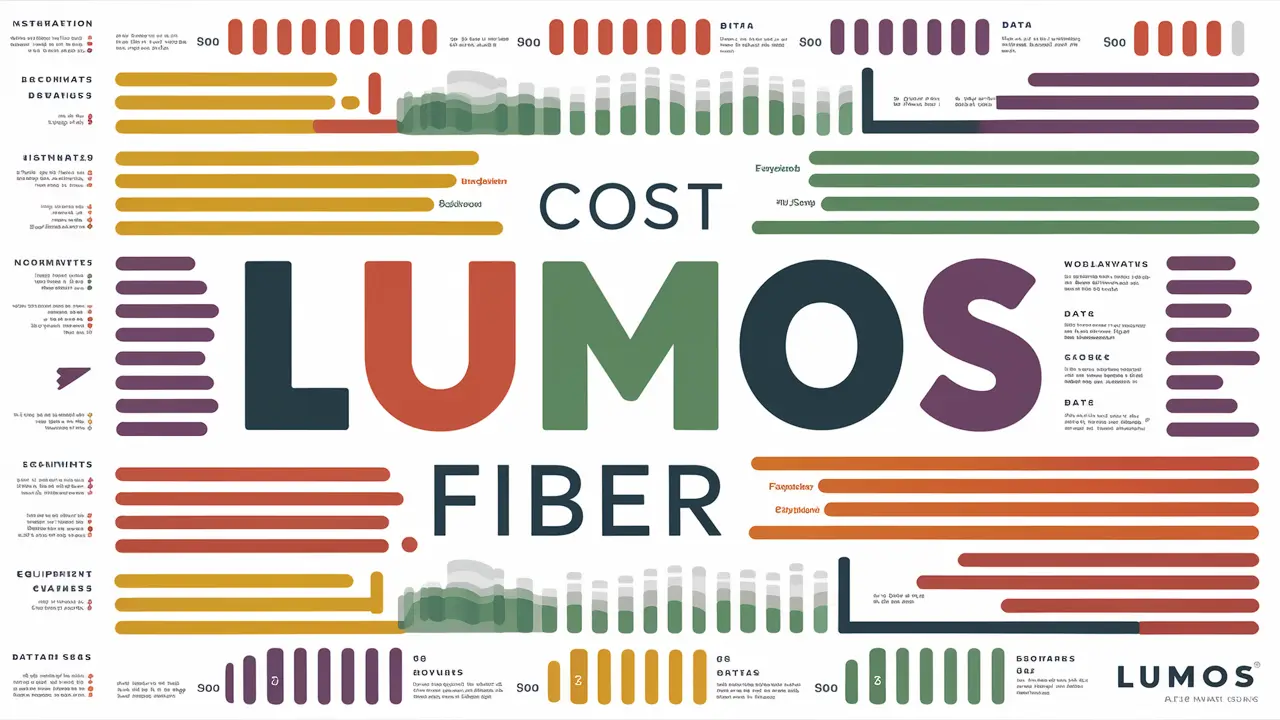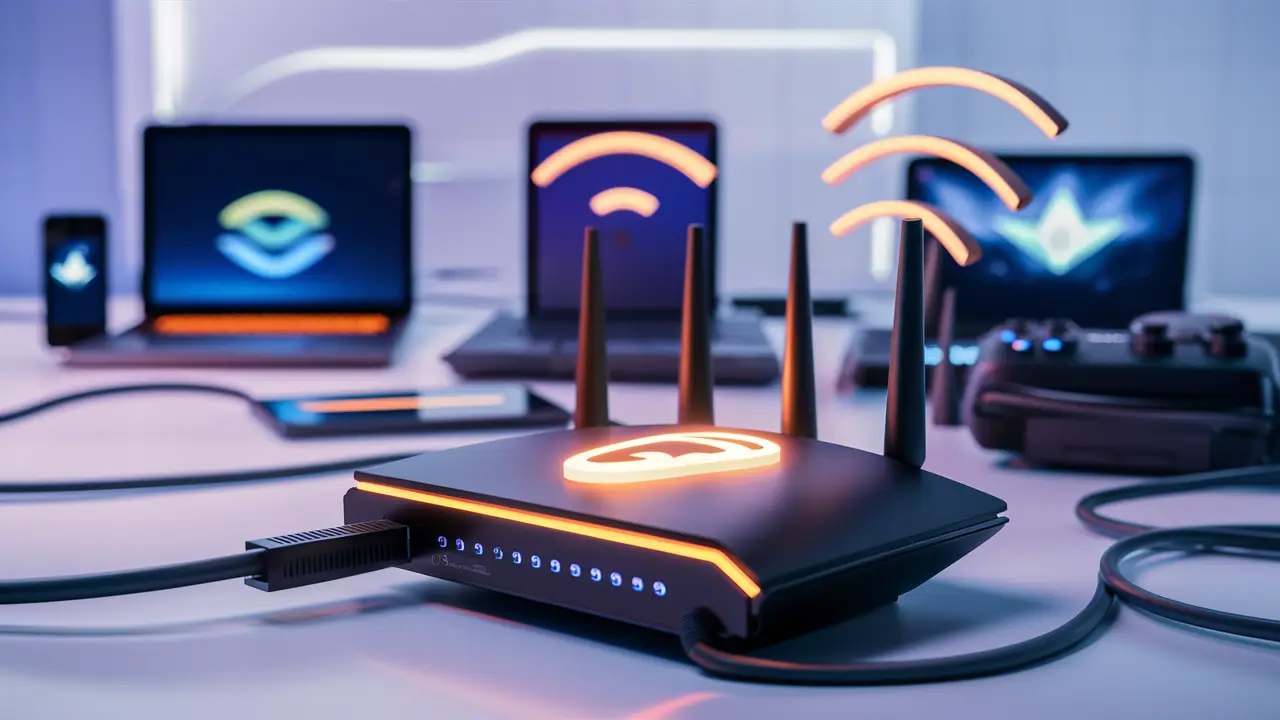Lumen Residential Fiber: How It Compares to Other Providers
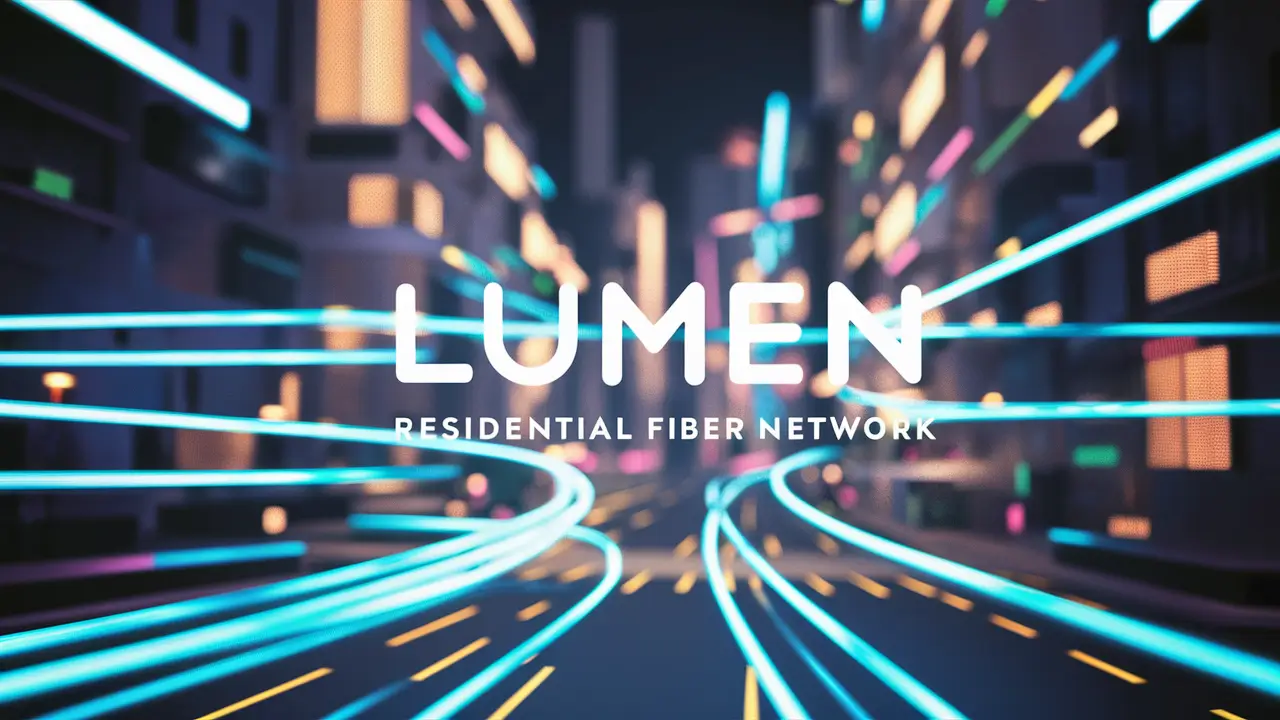
Choosing the right internet provider is crucial for a seamless online experience. This guide dives deep into Lumen residential fiber, meticulously comparing its offerings against key competitors. Discover speeds, pricing, reliability, and customer satisfaction to make an informed decision for your home in 2025.
Lumen Residential Fiber: An Overview
In the rapidly evolving landscape of high-speed internet, fiber optic technology stands out for its unparalleled performance. Lumen Technologies, a significant player in the telecommunications sector, offers residential fiber internet services designed to meet the demands of modern digital life. This comprehensive comparison aims to equip you with the knowledge to evaluate Lumen's fiber offerings against other leading providers, ensuring you select the service that best aligns with your needs and budget in 2025.
Key Factors for Comparing Fiber Providers
When evaluating internet service providers, especially fiber optic options, several critical factors come into play. Understanding these elements will help you navigate the choices and make an informed decision. Here are the primary aspects to consider:
- Speed and Bandwidth: This is often the most touted feature of fiber internet. Look at advertised download and upload speeds. For fiber, symmetrical speeds (where upload and download speeds are the same) are a significant advantage. Consider how many devices will be connected simultaneously and what activities they will be used for (streaming 4K video, online gaming, video conferencing, large file transfers).
- Pricing and Value: Initial advertised prices can be deceiving. Investigate monthly costs, installation fees, equipment rental fees, and any promotional discounts that may expire. Compare the price per Mbps to get a true sense of value. Also, consider contract lengths and early termination fees.
- Reliability and Uptime: Fiber optic cables are less susceptible to interference and degradation than traditional cable or DSL lines. High reliability means fewer outages and consistent performance. Look for providers with a strong track record of uptime, often measured in percentages (e.g., 99.9% uptime).
- Customer Service and Support: Even with the best technology, issues can arise. The quality of customer service, including ease of contact, responsiveness, and problem resolution, is vital. Online reviews and independent consumer reports can offer insights into a provider's customer service reputation.
- Availability and Coverage: Fiber optic networks are expensive to deploy, meaning availability is often limited to specific geographic areas. You'll need to check if Lumen or any competitor actually offers service at your address. This is frequently the most significant limiting factor.
- Equipment and Installation: Understand what equipment is provided (modem, router) and if there are any rental fees. The installation process, including scheduling and technician professionalism, also contributes to the overall customer experience.
- Data Caps and Throttling: While less common with fiber providers compared to some cable or satellite services, it's essential to confirm if there are any data caps or policies on throttling after a certain usage threshold.
Lumen Residential Fiber: What to Expect
Lumen Technologies, formerly CenturyLink, has been investing heavily in expanding its fiber optic network to provide high-speed internet to residential customers. Known for its robust infrastructure, Lumen aims to deliver a superior internet experience. Let's break down what Lumen's residential fiber service typically entails.
Lumen Speed Tiers and Pricing (2025)
Lumen's fiber offerings are designed to cater to a range of user needs, from basic browsing to demanding applications. As of 2025, their typical speed tiers often include:
- 100 Mbps: Suitable for single users or small households with moderate internet usage, such as browsing, email, and occasional streaming.
- 300 Mbps: A good mid-tier option for households with multiple users and devices, capable of handling simultaneous streaming, online gaming, and video calls.
- 500 Mbps: Ideal for power users, large families, or those who frequently download large files, stream in 4K, and engage in competitive online gaming.
- 1 Gig (1000 Mbps) and above: The top-tier offering, providing blazing-fast speeds for virtually any online activity, ensuring no bottlenecks even with numerous connected devices.
Pricing for Lumen residential fiber can vary significantly based on location, promotional offers, and the specific speed tier chosen. However, a general outlook for 2025 suggests competitive pricing, often aiming to match or beat comparable fiber offerings from other major providers, especially for higher speed tiers. It's common to see introductory prices that may increase after a promotional period (e.g., 12-24 months). For example, a 300 Mbps plan might start around $50-$65 per month, with 1 Gig plans ranging from $75-$95 per month, often with no data caps and sometimes including modem rental or a one-time installation fee.
Example Pricing Scenario (Illustrative for 2025):
| Speed Tier | Estimated Monthly Price (Introductory) | Estimated Monthly Price (After Promo) | Upload Speed |
|---|---|---|---|
| 300 Mbps | $55 | $70 | 300 Mbps |
| 500 Mbps | $65 | $85 | 500 Mbps |
| 1 Gig (1000 Mbps) | $75 | $95 | 1000 Mbps |
Note: Prices and availability are subject to change and vary by region. Always check Lumen's official website for the most current information at your specific address.
Lumen Network and Reliability
Lumen operates an extensive fiber optic network, which is a significant advantage. Fiber optic internet is inherently more reliable than older technologies like DSL or cable because it uses light signals transmitted through glass or plastic strands. This makes it:
- Less susceptible to electromagnetic interference: Unlike copper wires, fiber is unaffected by power lines, radio signals, or weather conditions that can degrade performance in other technologies.
- More durable: Fiber optic cables are generally more robust and less prone to physical damage over long distances.
- Capable of higher bandwidth and lower latency: This translates to faster speeds and quicker response times, crucial for real-time applications like online gaming and video conferencing.
Lumen's commitment to its fiber infrastructure means customers can generally expect consistent speeds and high uptime. While no network is entirely immune to outages (due to construction, equipment failure, or natural disasters), fiber networks, in general, tend to offer superior reliability compared to cable or DSL. Independent network performance reports for 2025 often place fiber providers, including those leveraging Lumen's infrastructure, at the top for uptime and consistent speed delivery.
Lumen Customer Service and Support
Customer service experiences can be subjective and vary by region. Historically, Lumen (formerly CenturyLink) has received mixed reviews regarding its customer support. However, with the increased focus on its fiber expansion, there's an ongoing effort to improve customer satisfaction. When considering Lumen, it's advisable to look for recent customer reviews specific to their fiber service in your area.
Support channels typically include:
- Online chat and self-help resources (FAQs, troubleshooting guides)
- Phone support for technical issues and billing inquiries
- Technician visits for installation and repairs
For 2025, Lumen is likely to emphasize enhanced customer support options, including more accessible online tools and potentially faster response times for fiber-related issues. However, it remains an area where comparisons with competitors are essential. Some users may find dedicated fiber providers or those with a stronger reputation for customer care to be a better fit.
Lumen Availability and Coverage
This is perhaps the most critical factor for any fiber internet provider. Fiber optic networks are expensive and time-consuming to build. Lumen's fiber availability is concentrated in specific regions, often in areas where it has an existing infrastructure footprint or has made recent investments in fiber build-out. Unlike national cable giants or satellite providers, Lumen's fiber is not universally available.
To determine if Lumen residential fiber is available at your address, you will need to:
- Visit the Lumen official website.
- Enter your complete street address in the service availability checker.
- If fiber is available, you will see the available speed tiers and pricing for your location.
If Lumen fiber is not available, you will need to explore other providers. This highlights the importance of checking availability first before delving too deep into feature comparisons.
Lumen vs. Major Competitors
To truly understand Lumen's position in the market, we must compare it directly with other prominent internet service providers offering fiber or high-speed broadband. The competitive landscape for residential internet is fierce, with each provider vying for customer loyalty through speed, price, and service quality.
Lumen Fiber vs. AT&T Fiber
AT&T is another major telecommunications company with a significant fiber network expansion. Both Lumen and AT&T offer symmetrical gigabit speeds and are strong contenders in areas where they overlap.
Key Comparison Points:
- Speed: Both offer multi-gigabit speeds (up to 5 Gbps for AT&T in some areas, and 1 Gbps or higher for Lumen). Speeds are generally comparable where both are available.
- Pricing: AT&T often has competitive introductory pricing, similar to Lumen. However, post-promotional pricing and contract terms should be carefully examined. AT&T sometimes offers plans with no annual contract.
- Reliability: Both leverage fiber optic technology, promising high reliability and low latency. Customer reviews on reliability can vary by specific service area for both companies.
- Customer Service: Both have faced mixed reviews historically. AT&T has made significant strides in improving its customer service, particularly for its fiber product.
- Availability: Both have expanding fiber footprints, but neither is available nationwide. AT&T's fiber availability is extensive in many urban and suburban areas.
When to choose Lumen over AT&T: If Lumen offers a better promotional price or a slightly higher speed tier at a comparable price in your specific area. If you have had positive past experiences with Lumen/CenturyLink services.
When to choose AT&T over Lumen: If AT&T offers better overall value after promotional periods, has a stronger reputation for customer service in your area, or offers higher multi-gigabit speeds that Lumen doesn't match at your address.
Lumen Fiber vs. Verizon Fios
Verizon Fios is renowned for its 100% fiber-to-the-home network, delivering exceptional performance. Fios is primarily available in the Northeast and Mid-Atlantic regions of the U.S.
Key Comparison Points:
- Speed: Fios offers symmetrical speeds, typically starting at 300 Mbps, 500 Mbps, and up to 2 Gbps. Lumen's top speeds are often 1 Gbps, though they may offer higher in select areas.
- Pricing: Fios pricing is generally competitive, often with no annual contracts and included equipment. Lumen's pricing can be comparable, but it's crucial to check for hidden fees and contract lengths.
- Reliability: Both are fiber, so reliability is high. Verizon Fios is often cited for its consistent performance and low latency.
- Customer Service: Verizon Fios generally receives positive marks for customer service and support, often outperforming many competitors.
- Availability: This is the biggest differentiator. Fios is geographically limited. If you are in a Fios service area, it's a strong contender. Lumen's availability is different.
When to choose Lumen over Verizon Fios: Only if Lumen is available at your address and Fios is not, or if Lumen offers a significantly better deal that outweighs Fios's perceived service advantages.
When to choose Verizon Fios over Lumen: If you are in a Fios service area, value a 100% fiber network with a strong reputation for reliability and customer service, and prefer plans with no annual contracts.
Lumen Fiber vs. Xfinity Gigabit Internet
Xfinity (Comcast) is the largest cable internet provider in the U.S. While their primary technology is coaxial cable, they offer gigabit-speed tiers that compete with fiber.
Key Comparison Points:
- Speed: Xfinity offers gigabit speeds (up to 2 Gbps in some areas), but these are typically "up to" speeds and are asymmetrical (download speeds are much higher than upload speeds). Lumen offers symmetrical gigabit speeds. The upload speed difference is a major factor for power users.
- Pricing: Xfinity's gigabit plans can be competitively priced, especially with bundles. However, they often come with data caps (e.g., 1.2 TB) and equipment rental fees. Lumen's fiber typically has no data caps and may include modem rental.
- Reliability: Cable internet, while improved, is generally more susceptible to congestion and performance degradation during peak hours compared to fiber. Fiber offers more consistent speeds.
- Customer Service: Xfinity's customer service has historically received mixed to negative reviews, often cited as a pain point. Lumen's customer service can also be variable.
- Availability: Xfinity has near-ubiquitous availability in many urban and suburban areas across the U.S.
When to choose Lumen over Xfinity: If symmetrical speeds are important (for video conferencing, uploading large files, streaming to multiple devices), if you want unlimited data, and if you prioritize consistent performance over potential peak-hour slowdowns. Also, if Lumen fiber is available and Xfinity's plans include undesirable data caps or contract terms.
When to choose Xfinity over Lumen: If Lumen fiber is not available at your address, or if Xfinity offers a significantly better price for a bundle that includes TV and/or phone services, and the asymmetrical speeds and data caps are acceptable for your usage.
Lumen Fiber vs. Google Fiber
Google Fiber is a pioneer in offering gigabit fiber internet, known for its transparent pricing and high-speed offerings. However, its rollout has been slower and more geographically focused than some other providers.
Key Comparison Points:
- Speed: Google Fiber typically offers symmetrical gigabit speeds (1 Gbps) and sometimes multi-gigabit options. Lumen also offers symmetrical gigabit speeds.
- Pricing: Google Fiber is known for its straightforward pricing, often with no annual contracts and no data caps. Lumen's pricing can be competitive but may involve introductory offers with price increases and potentially shorter contract terms.
- Reliability: Both are fiber, offering excellent reliability and low latency.
- Customer Service: Google Fiber generally receives high marks for customer service and transparency. Lumen's service can be more variable.
- Availability: Google Fiber's availability is limited to specific cities and metro areas. Lumen's availability is also limited but may cover different regions.
When to choose Lumen over Google Fiber: If Google Fiber is not available in your area, or if Lumen is offering a superior promotional deal that makes it more cost-effective for your specific needs.
When to choose Google Fiber over Lumen: If Google Fiber is available, you value transparent pricing, no annual contracts, unlimited data, and a strong reputation for customer service.
Lumen Fiber vs. Local Fiber Providers
Many regions are served by smaller, local fiber optic providers or municipal broadband initiatives. These providers can sometimes offer highly competitive pricing and excellent service.
Key Comparison Points:
- Speed: Local providers often match or exceed the speeds offered by national carriers, including symmetrical gigabit speeds.
- Pricing: Pricing can be very aggressive, especially from municipal providers who may not be driven solely by profit margins.
- Reliability: Fiber technology is inherently reliable, so local providers often offer excellent uptime.
- Customer Service: Local providers often pride themselves on personalized, community-focused customer service, which can be a significant advantage.
- Availability: This is the defining factor. Local providers are, by definition, limited to their service area.
When to choose Lumen over a local provider: If the local provider is not available, or if Lumen offers a specific service or speed tier that the local provider cannot match, and the price difference is justifiable.
When to choose a local provider over Lumen: If a local provider is available, offers comparable or better speeds and reliability, and provides superior customer service or pricing. Supporting local businesses can also be a factor for some consumers.
Making the Right Choice for Your Household
Selecting the best internet provider involves more than just looking at advertised speeds. It requires a thorough understanding of your household's unique needs and a careful evaluation of the long-term implications of your choice.
Understanding Your Internet Needs
Before comparing providers, assess your typical internet usage. Consider the following:
- Number of users and devices: How many people live in your home, and how many devices (smartphones, laptops, tablets, smart TVs, gaming consoles, smart home devices) are connected simultaneously? More users and devices mean higher bandwidth requirements.
- Primary online activities:
- Basic browsing and email: Lower speeds (e.g., 50-100 Mbps) may suffice.
- Streaming (HD/4K): Requires higher speeds (e.g., 100-300 Mbps per stream, depending on quality).
- Online gaming: Needs low latency and stable, fast speeds (e.g., 100 Mbps+).
- Video conferencing (work/school): Requires good upload speeds (symmetrical fiber is ideal) and stable connections (e.g., 50-100 Mbps download/upload).
- Large file downloads/uploads: The faster the speed, the quicker these tasks are completed. Gigabit speeds are beneficial here.
- Future needs: Are you planning to add more smart devices, upgrade your streaming services, or start a home-based business? Consider a plan that can accommodate future growth.
For a typical household in 2025 with multiple users and devices engaged in streaming, gaming, and video calls, a minimum of 300-500 Mbps symmetrical fiber is often recommended. For power users or larger households, 1 Gbps or higher is ideal.
Evaluating Long-Term Value
The initial price is only part of the equation. To assess long-term value:
- Calculate total cost over 1-2 years: Factor in monthly fees (after promotional periods), equipment rental, installation fees, and potential price increases.
- Compare price per Mbps: Divide the monthly cost by the advertised speed to get a rough idea of value, but remember that symmetrical speeds and reliability are crucial for fiber.
- Consider contract length: A longer contract might lock in a lower price but offers less flexibility. No-contract plans provide freedom but might have slightly higher ongoing costs.
- Look at bundled services: Sometimes, bundling internet with TV or phone can offer savings, but ensure you're not paying for services you don't need.
- Read reviews: Pay attention to reviews regarding long-term satisfaction, customer service responsiveness, and the frequency of unexpected price hikes.
Fiber internet, while often having a higher upfront cost or monthly fee than DSL or cable, typically provides superior long-term value due to its speed, reliability, and future-proofing capabilities. Lumen's fiber plans, when compared on a total cost of ownership basis, can offer excellent value, especially for their higher speed tiers.
Reading the Fine Print: Contracts and Fees
This is where many consumers can be caught off guard. Always scrutinize the details:
- Contract Length: Does the advertised price require a 12-month, 24-month, or longer contract? What is the early termination fee (ETF)?
- Promotional Period: How long does the introductory price last? What is the standard price after the promotion ends?
- Equipment Fees: Is a modem/router included, or is there a monthly rental fee? What is the cost of purchasing your own compatible equipment?
- Installation Fees: Is there a one-time charge for professional installation? Are there self-installation options?
- Other Fees: Look out for terms like "regulatory recovery fees," "service fees," or "network access fees" that can add to your monthly bill.
- Data Caps: While less common with fiber, confirm there are no data caps or overage charges.
- Price Guarantees: Does the provider guarantee the price for the duration of the contract, or can it increase?
Lumen, like many providers, may have introductory pricing and standard rates that differ. Understanding these transitions is key to avoiding surprises. For instance, a 1 Gbps plan advertised at $75 might be for 12 months, after which it could rise to $95.
Conclusion: Is Lumen Residential Fiber the Best Fit for You?
Lumen residential fiber stands as a strong contender in the high-speed internet market, particularly for consumers seeking the unparalleled performance of fiber optics. Its key strengths lie in its symmetrical speeds, robust network infrastructure, and competitive pricing, especially for its higher-tier plans. When compared to major providers like AT&T Fiber, Verizon Fios, Xfinity, and Google Fiber, Lumen often holds its own, offering a compelling alternative depending on your specific location and needs.
The decision hinges on availability, your household's internet demands, and your tolerance for potential customer service variations. If Lumen fiber is available at your address, it's definitely worth serious consideration, especially if you prioritize consistent, high-speed symmetrical upload and download performance for demanding online activities like 4K streaming, online gaming, and extensive video conferencing. Always compare the exact pricing, contract terms, and any associated fees with other available providers in your area to ensure you're getting the best overall value.
Ultimately, Lumen residential fiber offers a premium internet experience that can significantly enhance your digital life. By carefully weighing its advantages against those of its competitors and aligning the service with your specific requirements, you can confidently choose the internet solution that best serves your home in 2025 and beyond.
